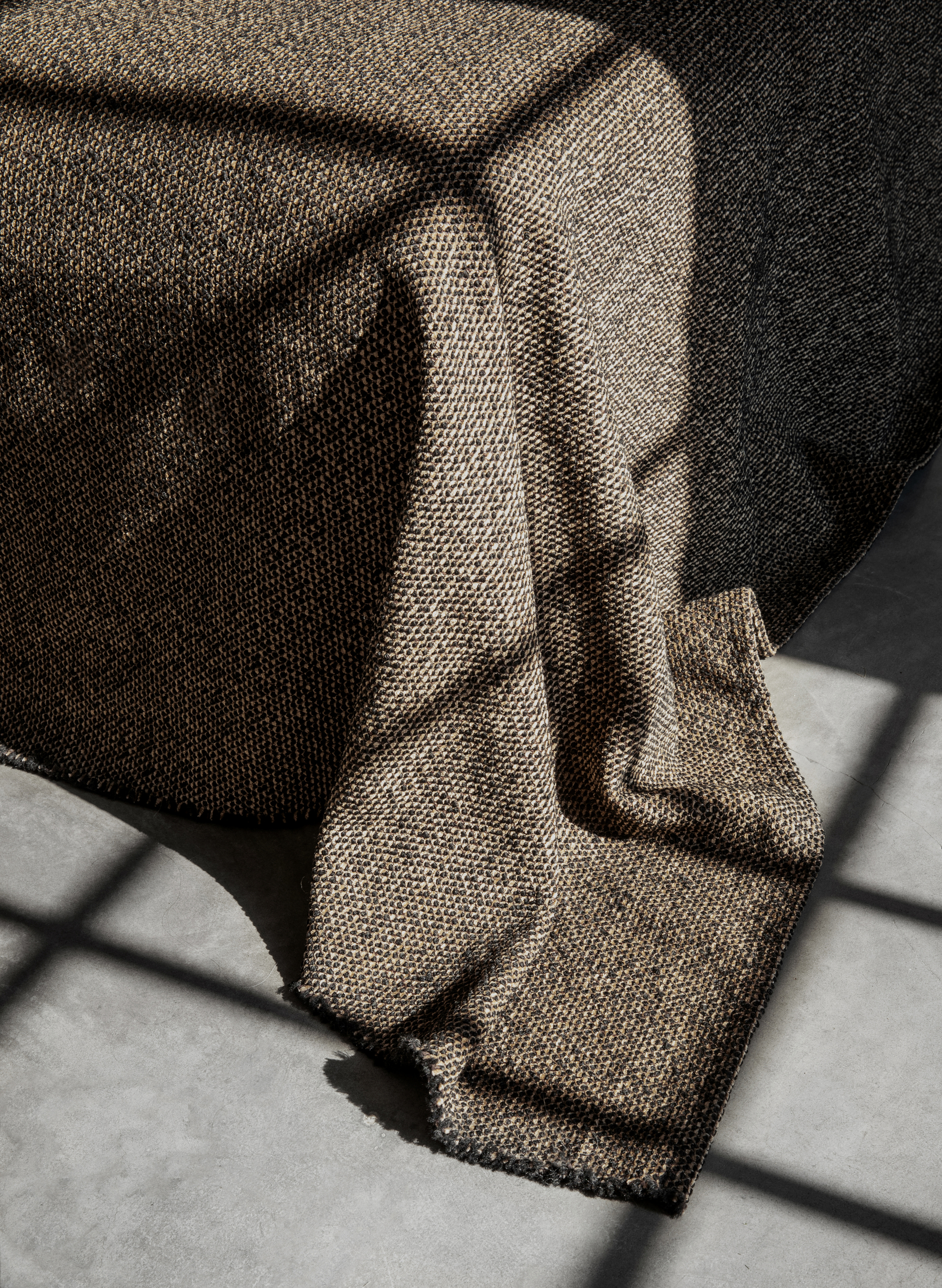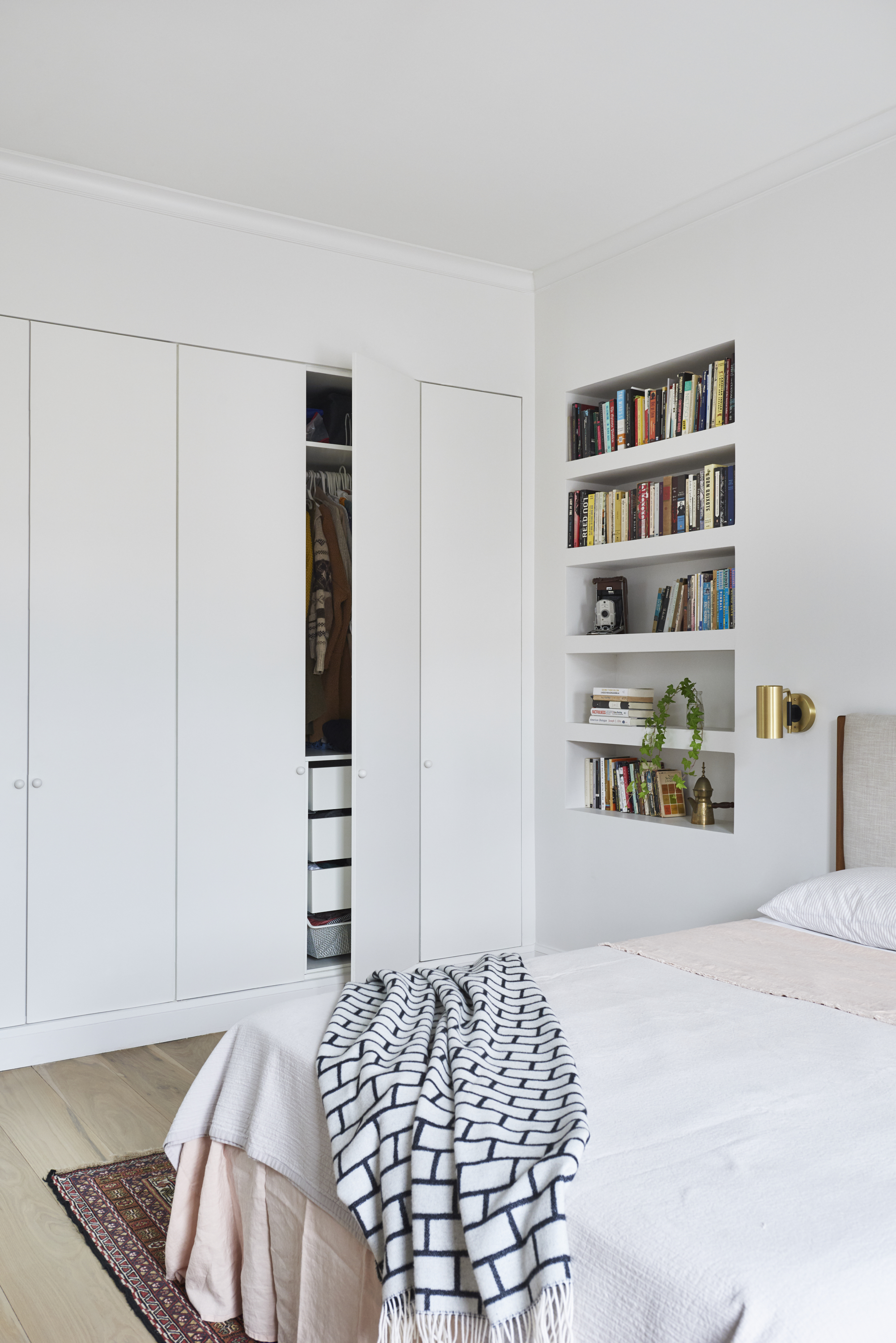How to store blankets – here's the 5 step process that professional organizers swear by
These blanket storage ideas are a must as you transition your home from winter to summer, according to home organizers


The Livingetc newsletters are your inside source for what’s shaping interiors now - and what’s next. Discover trend forecasts, smart style ideas, and curated shopping inspiration that brings design to life. Subscribe today and stay ahead of the curve.
You are now subscribed
Your newsletter sign-up was successful
There are a good number of reasons you might be looking for blanket storage ideas. In the warmer seasons, blankets aren't such a necessity for bedrooms or living rooms, so you might be looking to pack them away until fall, or you might just want to keep them close at hand, but not necessarily on your sofa or bed.
The question is not only where to keep them but how best to store them. You might have a slot ready thanks to some efficient closet organization ideas, but once you do decide on where to store them, ensuring they come out again fresh and ready to use is the challenge.
Livingetc asked professional organizers how they approach storing blankets, and they've offered up a five-step plan putting blankets away, with a guarantee that they'll be ready to use the next time you need them.
The best blanket storage ideas in 5 simple steps
Consider the number of blankets you own, and if you need to keep all or some of them away. Of course, you don't want to sleep in the heat with a thick blanket but sometimes, you will need a light one on an odd night as you're binging Netflix. The heavier ones can be kept away until the temperature drops.
Now you're ready to try these blanket storage ideas to keep them clean, tidy and organized.
1. Dry clean or hand wash before storing

'Firstly you want to make sure all your bedding is clean before putting it away in your bedroom organizer; it is also important to make sure all of it is dry as leftover moisture will cause mold to grow,' says Rachel-Elizabeth Mitchell of Please Organise Me.
Ideally, there are two ways to clean your duvets. You could hand wash or machine wash them or, send them to the dry cleaners. 'I feel the dry cleaners is a safer bet because you can be sure your blankets are completely rid of food and other stains,' says Tia Mellis, founder of The Mess Goddess. 'If it's a family heirloom, you may want to wash it by hand. Be careful with the fabric. Stains get trapped between the threads so first try to remove them gently with your finger and then with a light detergent. Hot water is not good for most fabrics as it wears them out.'
The Livingetc newsletters are your inside source for what’s shaping interiors now - and what’s next. Discover trend forecasts, smart style ideas, and curated shopping inspiration that brings design to life. Subscribe today and stay ahead of the curve.
'I cannot insist on how important it is to have thoroughly clean duvets before storing,' says Tia. 'If you pack something away and it has a stain on it, you can be sure that in a couple of months when you open up, the stain is going to be worse and very difficult to remove. And, moths loves food.'
2. Clean your storage, too

A lot of spring/summer cleaning is about clearing up areas so you can stow away things you don't need in a neat and orderly manner. Vacuum under the beds, dust and wipe your hallway closets and sweep under and above your armoires; essentially areas where you will be storing your blankets.
This is because no matter how clean your blankets may be, if the area where you're storing them is damp, dusty, or covered in fungus, chances are it will ruin your blanket too. While this may seem like too much work, you can be sure this practice will take care of your expensive bedding for years to come.
'Once we are confident we have cleaned the blankets thoroughly, we need to be sure that the area where we are putting the blankets in is clean as well,' says Tia. 'After that comes the next step – how to store it.'
3. Pack them in canvas, cloth or pillow covers

'The biggest mistake people make is storing their blankets and duvets in plastic, vacuum bags, 'explains Tia. 'This is a big no-no. I suggest using these only for temporary use, in case you need to store something for a few days or a week.'
'The reason for this is that in these bags, even the tiniest drop of water can cause havoc, and very quickly ruin your bedding with the moths,' she continues. 'Plus, these also completely squeeze the duvets and over time they become mangy and lifeless.'
Ideally, use cloth or canvas bags in your bedroom storage because they are breathable without squashing the bedding. These also ensure minimum creases and allow the fabric to receive air for months in storage.
Consider storing your bedding neatly folded in a linen closet. 'The airflow will ward off mold and unpleasant smells,' says Rachel-Elizabeth of Please Organise Me. 'There are other good spaces to store them, but just make sure to keep your bedding out of sheds, basements, or garages to avoid pests and moisture.'
'Acid-free boxes and tissue paper are ideal for long term quilt storage,' says Rachel-Elizabeth. 'Wrap these between each layer of cloth to prevent the fabric from bleeding and creasing. And, when it comes to mothproofing, we don’t recommend mothballs as they can leave a smell and can cause allergic reactions. Instead, we recommend cedar, lavender, and also linen bags.'
A great tip by Tia is to store blankets inside cotton pillow slips – these are handy, at home, inexpensive and multipurpose.
4. Add a pleasing scent to them

Give yourself a treat when you unpack your blankets from storage, but giving them a spritz with a nice scent.
'Try and choose scents that moss don't like,' says The Mess Goddess' Tia Mellis. 'The May Chang blend at Total Wardrobe Care is great. Eucalyptus, seedwood, and lavender sachets work well, so when you open your bag again, you will get a good whiff of them and smile.'
5. Store them properly

Just like clothes, blankets can be hung in storage to preserve their quality. But of course, storage and space are usually at a premium in most homes, so look for clever storage hacks in every room to keep these items. 'You could hang your blankets individually in a garment bag, though if that's not possible, or if your blankets are a more delicate material, they're best stored flat,' says Laura Cattano, founder, of Organizational Design.
'You can also maximize space by folding your bedding and sheets effectively,' says Rachel-Elizabeth. 'A wonderful way to store blankets accessibly is to roll them into a ball or cylinder and tie them into place with a ribbon. It will also keep them from being crushed by the weight of other blankets. Try to store them by weight and avoid having anything on top of your down comforters.'
Should I store blankets in baskets?
'One thing to consider when storing blankets is how often might you need to access them. Even during the summer months, you might want to have some blankets easily available, in your living room for a cosy TV night or in the garden for some late drinks when temperatures get a little chillier,' says Caroline Caron Dhaouadi, founder of Homefulness Ltd. 'In that case, consider rolling a few blankets in a large cotton-rope basket for example. They come in many different style and colour and can be easily integrated in your decor. Make sure to avoid unlined rattan baskets which can damage knitted blankets.'
Even storage boxes and ottomans can be useful in hiding the blankets in plain sight.
'You can also store them under the bed, or in a living room cupboard if you want them at an arm's reach,' says Tia. 'Beautiful decorative boxes are the way to go for their storage if they're kept out. Otherwise elegant baskets with a top, so they open up like a beautiful picnic basket.'
How do I store blankets in a living room?
If your home is running out of storage space, you could use the living room as an effective storage area. But you need to be careful about either hiding them in plain sight or using them decoratively.
Keep your blankets inside an ottoman with hidden storage. This is doubly convenient when you settle down on your couch to watch a movie, you can simply reach out to the ottoman to grab your blanket.
Similarly, if you have an open floor plan, you could use your dining room's cutlery cupboard to store your blanket too. Just make sure the cupboard doesn't have clear glass, and its contents are hidden from view.
Otherwise, you could create a nice vignette with a baskets and other decor, and place the blankets inside the baskets in a flowing manner. Place a ladder on the wall and hang a thin duvet over it to make it look whimsical. You can also use your duvet as a throw, and wrap it around a sofa or a chair.

Aditi Sharma Maheshwari started her career at The Address (The Times of India), a tabloid on interiors and art. She wrote profiles of Indian artists, designers, and architects, and covered inspiring houses and commercial properties. After four years, she moved to ELLE DECOR as a senior features writer, where she contributed to the magazine and website, and also worked alongside the events team on India Design ID — the brand’s 10-day, annual design show. She wrote across topics: from designer interviews, and house tours, to new product launches, shopping pages, and reviews. After three years, she was hired as the senior editor at Houzz. The website content focused on practical advice on decorating the home and making design feel more approachable. She created fresh series on budget buys, design hacks, and DIYs, all backed with expert advice. Equipped with sizable knowledge of the industry and with a good network, she moved to Architectural Digest (Conde Nast) as the digital editor. The publication's focus was on high-end design, and her content highlighted A-listers, starchitects, and high-concept products, all customized for an audience that loves and invests in luxury. After a two-year stint, she moved to the UK and was hired at Livingetc as a design editor. She now freelances for a variety of interiors publications.